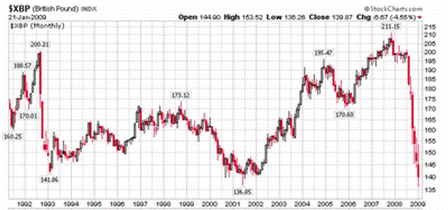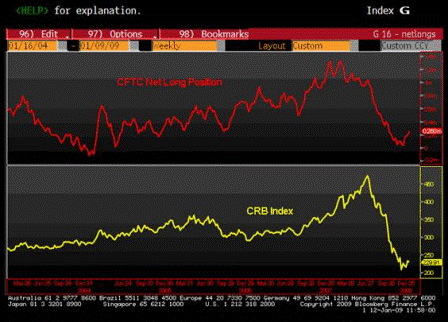[Skip to the end]
(an email to Martin Wolf, FT columnist)
From your recent article:
The bigger point, however, is not that the package needs to be larger, although it does.
Agreed.
It is that escaping from huge and prolonged deficits will be very hard.
Why the notion of ‘escape’?
With convertible currency and a floating foreign exchange policy, all that matters is sustaining demand to support output and employment.
Why does the size of the deficit matter?
As long as the private sector seeks to reduce its debt and the current account is in structural deficit, the US must run big fiscal deficits if it is to sustain full employment.
Fine, so what? There is no operational constraint to doing this. And as long as it’s ‘filling a hole’ in domestic demand, what difference does it me?
That leads to the third point Mr Obama’s advisers must make. This is that running huge fiscal deficits for years is indeed possible.
Of course it’s not.
But the US could get away with this only if default were out of the question.
Forced default is out of the question.
The US government makes any and all USD payments via data entry into its own spreadsheet. What are the possible default conditions?
And when a government security matures, the Fed debits the holder’s security account and credits its bank reserve account.
The risk of too much deficit spending is inflation, not solvency, and when filing a hole in domestic demand, the inflation risk is no more than it normally is when the private sector has the same amount of aggregate demand for any other reason.
Warren Mosler
And the Wolf responds..
>
> On Thu, Jan 15, 2009 at 5:09 PM, Martin Wolf wrote:
>
>
> Inflation is default.
>
I respectfully do not agree.
Default is failure to make payment as agreed.
There is no zero inflation contract.
In fact, most every currency has inflation most years.
>
> Surely that is obvious to everybody.
>
Credit default contracts don’t include inflation, nor does any other default provision.
>
> When the economy finally recovers, the government will end up with a very large debt.
>
It will be some % of GDP that you may consider ‘very large’.
>
> Such debt is owed to bond-holders and serviced by taxpayers.
>
In the first instance it is serviced by crediting accounts on the Fed’s own spread sheet.
If aggregate demand is deemed too high at that time future governments may opt to raise taxes.
If future govts desire to alter the distribution of real output to those then alive they will be free to do that via the usual fiscal and monetary measures.
>
> Politicians who are elected by the latter will want to default on liabilities to the former
> (particularly if many of them are foreigners) and provide taxpayers with goodies, instead.
>
Very possible!
>
> A burst of inflation is how they have always done it.
>
Yes.
>
> End of story.
>
As above. If you mean to say deficits will cause inflation, then do that.
Default is the wrong word for an international financial column.
Surely that’s obvious to everyone.
>
> I suggest you study the history of Argentina or indeed of the post-first-world-war inflations.
>
And you can study what the ratings agencies have considered to be defaults.
All the best,
Warren
>
> Martin Wolf
>
[top]



